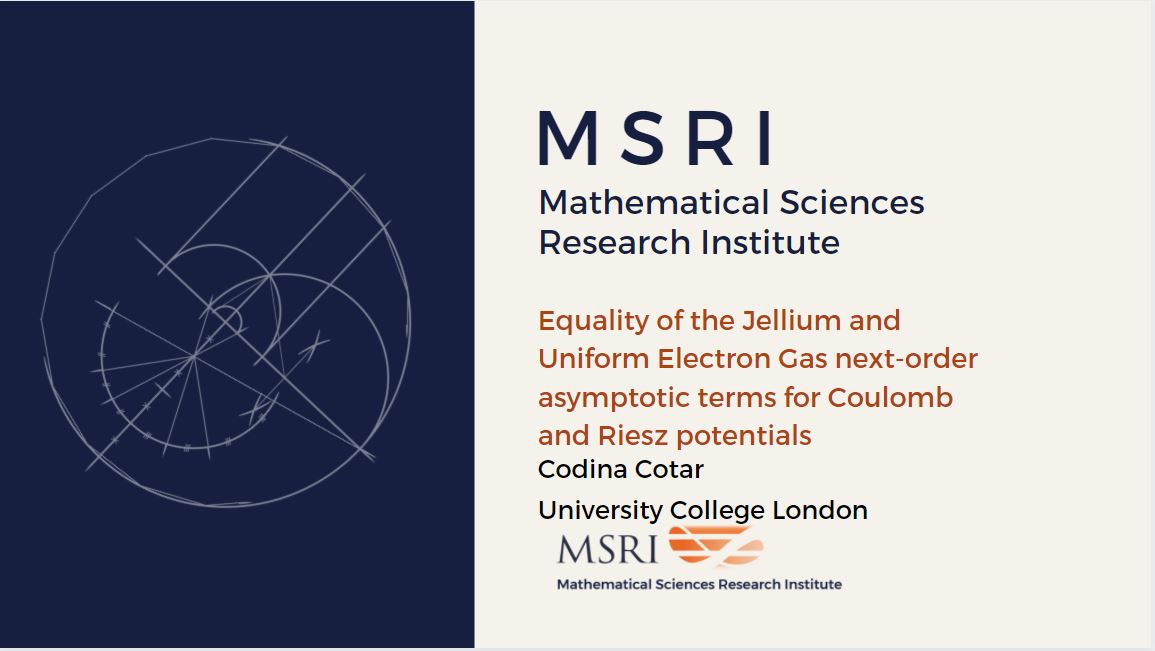Equality of the Jellium and Uniform Electron Gas next-order asymptotic terms for Coulomb and Riesz potentials
Presenter
May 6, 2020
Keywords:
- Coulomb and Riesz gases
- N-marginals optimal transport with Coulomb and Riesz costs
- next order term
- Hohenberg-Kohn functional
- optimal Lieb-Oxford bound
- Jellium
- Uniform Electron Gas
- equality of next-order constants
- Fefferman-Gregg decomposition
- Abrikosov conjecture
- screening
- multi-scale decomposition
- Density Functional Theory (DFT)
Abstract
We consider two sharp next-order asymptotics problems, namely the asymptotics for the minimum energy for optimal point configurations and the asymptotics for the many-marginals Optimal Transport, in both cases with Riesz costs with inverse power-law long range interactions. The first problem describes the ground state of a Coulomb or Riesz gas, while the second appears as a semiclassical limit of the Density Functional Theory energy modelling a quantum version of the same system. Recently the second-order term in these expansions was precisely described, and corresponds respectively to a Jellium and to a Uniform Electron Gas model. The present work shows that for inverse-power-law interactions with power s∈[d−2,d) in d dimensions, the two problems have the same minimum value asymptotically. For the Coulomb case in d=3, our result verifies the physicists' long-standing conjecture regarding the equality of the second-order terms for these two problems. Furthermore, our work implies that, whereas minimum values are equal, the minimizers may be different. Moreover, provided that the crystallization hypothesis in d=3 holds, which is analogous to Abrikosov's conjecture in d=2, then our result verifies the physicists' conjectured ≈1.4442 lower bound on the famous Lieb-Oxford constant. Our work also rigorously confirms some of the predictions formulated by physicists, regarding the optimal value of the Uniform Electron Gas second-order asymptotic term. We also show that on the whole range s∈(0,d), the Uniform Electron Gas second-order constant is continuous in s.
